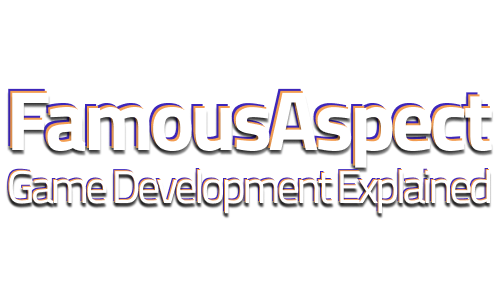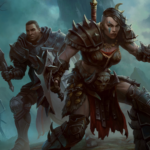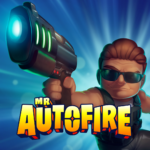Empathy is the secret superpower of great game engineers. This was one of the most insightful takeaways from my interview with veteran Technical Director James Marr about the difference between merely Good and truly Great when it comes to game engineering.
In his illustrious career in game development, James has held leadership positions at companies including Zynga, DeNA and N3TWORK Studios. He has been a technical lead on games including Eliminate – the first 3D, free-to-play shooter on mobile, as well as top grossing hits Hellfire and Legendary: Game of Heroes.
Of course, the hard skills like math, language proficiency, logic and critical thinking are essential skills for any game engineer. But what separates the Good from the Great? According to James, it is soft skills, and especially Empathy, that are the secret superpowers of great game engineers.
I transcribed the following highlight from our conversation where he explains why empathy is so important to communicating with collaborators of all disciplines, solving problems in a respectful manner and looking after the long term happiness and health of your game team.
The following excerpt has been lightly edited for clarity.
Ethan: What would you put in the bucket of underappreciated skills that make for a great game engineer?
James: The ability to put yourself in the shoes of the person that you’re talking to is critical. Invariably, engineers are going to have the deepest and broadest understanding of what’s really going on with your software. And it can be really easy as an engineer to accidentally start talking techno gobbledy gook to somebody.
So a really important skill is to be able to put yourself in the shoes of the person you’re talking to. What’s their level of understanding? What do they actually care about? And then use that as a lens to craft the way that you communicate with them.
You need to put things at the right level of technicality and to focus on the things that impact the goals and desires of the person you’re talking to.
Ethan: Something I’ve always been impressed with in our time working together was your communication skills and your empathy. What you’re saying is that empathy is the secret superpower of a great engineer, right?
That’s part of why I’m a better designer after working with you. It’s because of your communication skills and your ability to explain things to me in a way I, as a non-technical person, can understand so that we can solve problems together.
James: One related soft skill that I wanted to bring up that I also think is underappreciated is giving other people room to talk and explore ideas. Not to stereotype, but we engineers tend to be pretty logical and a lot of us have pretty high degrees of self-confidence because we feel so capable.
And it’s really important to let other people on the team explore ideas and to say things that might be a dead end and not to be overly critical and negative and give ideas the opportunity to breathe.
Ethan: A skill that took me a long time to develop and I’m still not as great as I would like at, is when another designer, product manager or engineer, you know, anybody who I’m collaborating with has a design idea and the fast twitch part of my brain goes “No. That’s dumb.”
James: You immediately jump to all of these reasons to just immediately dismiss it out of hand.
Ethan: Exactly. And, and what I’m hearing is that part of the great skill of being a collaborator is filtering that part of your brain. Not saying no right away, even if 30 minutes later you find your knee-jerk response was right.
Because a lot of times in my experience with game design, I’ll find my knee-jerk response was wrong. The other person had a great justification for what they were going to do. And because I had some self-control in that instance we get to a better solution together.
James: And going one step further, it’s actually more than just the solution that you come to in the moment that’s important. Another thing that I think people don’t spend enough time really thinking about is the interpersonal relationships between team members. The power dynamics and the reputation and the expectation: when I go and talk to this person, how are they going to respond to me?
So pushing aside that fast twitch reflex to say no gives the other person more agency. They feel like you’re a collaborative partner rather than somebody who’s shooting them down. They’ll be more likely to come to you when they have a problem. You’ll have better rapport.
It really helps build team cohesion and prevents these unspoken schisms from developing in the game team.
Ethan Levy is a 20 year veteran game designer, producer and monetization expert, having worked on over 80+ shipped games across every platform and business model. He is Deconstructor of Fun’s resident Crypto Kid, and is on the hunt for a Technical Director to help him build the next, great Web3 games studio. If this sounds like the right next adventure for you, reach out on LinkedIn.
If you enjoyed this highlight do yourself a favor and listen to the full conversation with James Marr embedded above. Or subscribe to the Deconstructor of Fun podcast feed on your favorite podcasting app.


